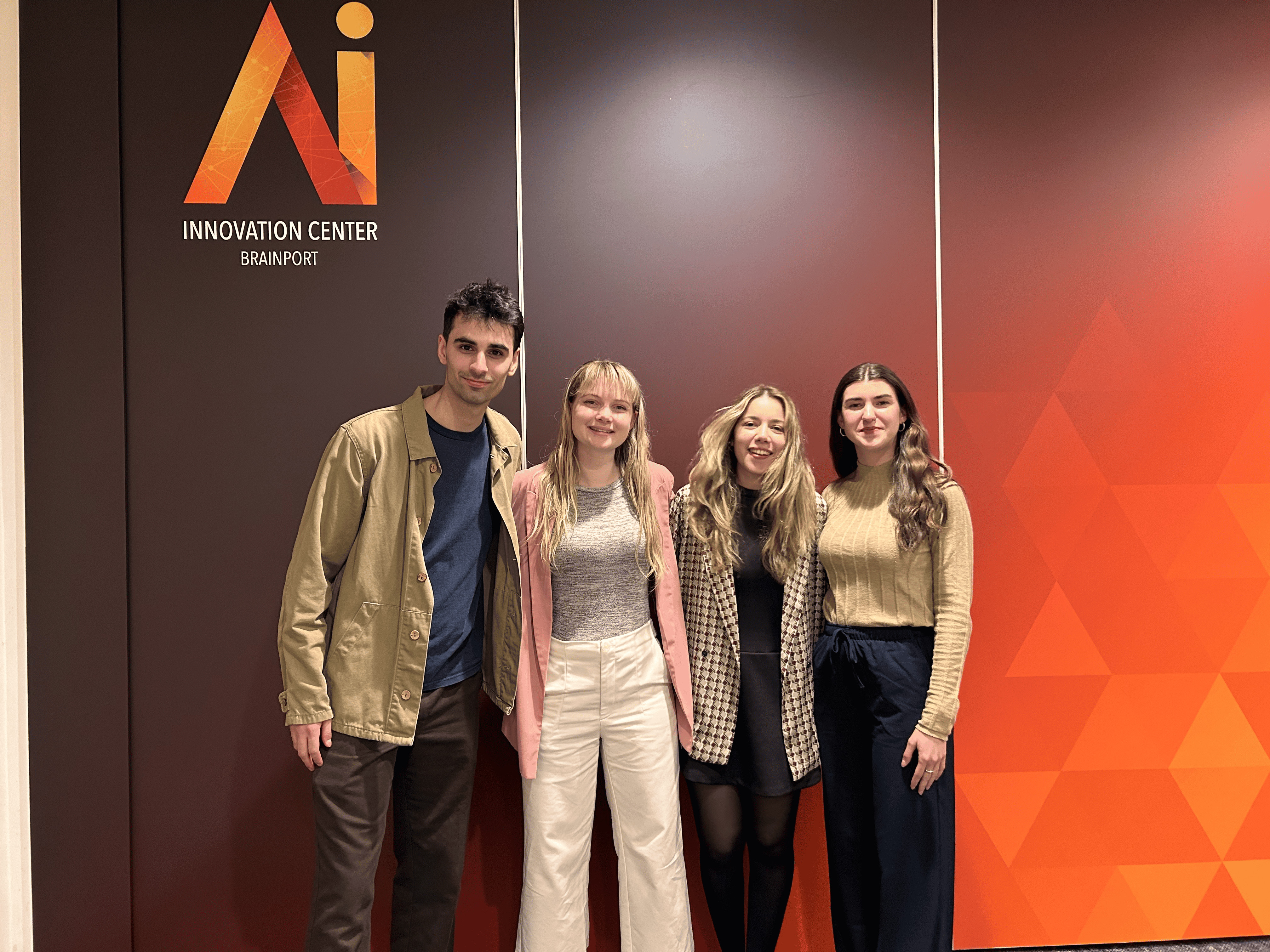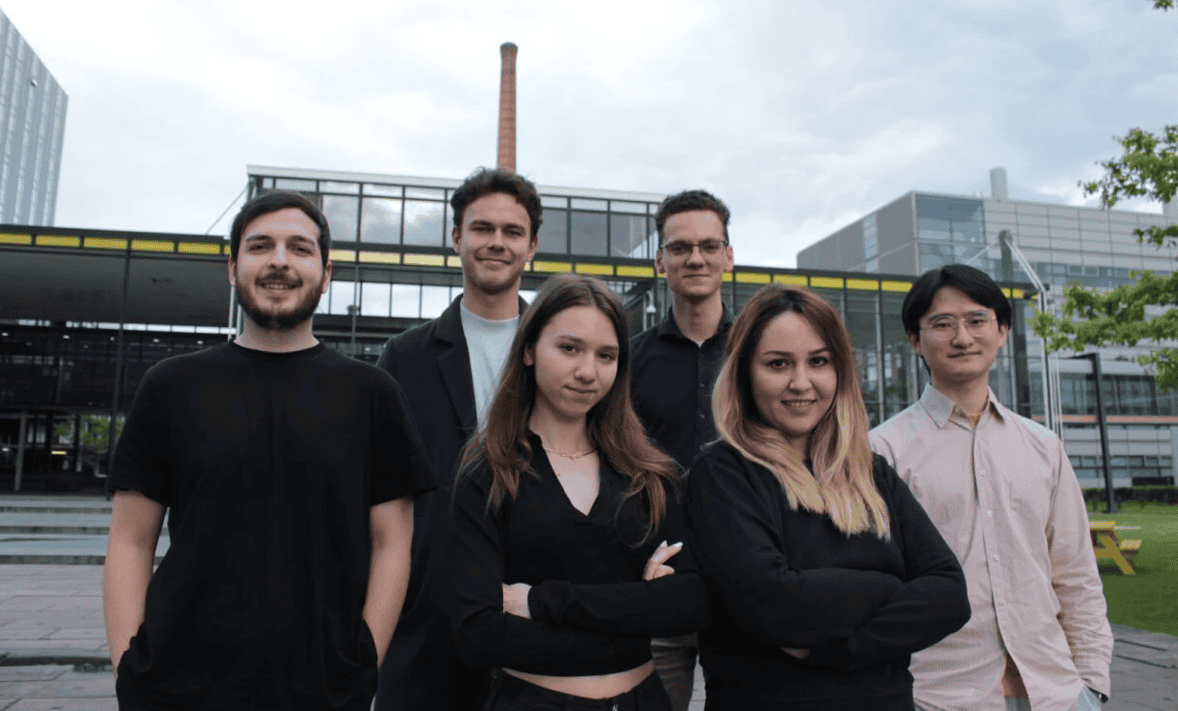
It usually takes years before a new drug is approved for the market. Countless clinical studies have to be conducted and they produce a lot of data. These data must also be linked and, if necessary, compared with other studies in order to obtain usable results. These types of networks between different institutions is not easy for many reasons, e.g. strict data protection regulations.
Munich-based start-up Climedo now offers researchers the opportunity to store the data they have collected in their research in a standardized way with its software. This should make administrative work easier for physicians in the future and give them more time for their patients.
Climedo co-founder Veronika Schweighart in an interview with Innovation Origins:

Who is behind Climedo? Who are the founders?
There are three founders behind Climedo: Sascha Ritz (CEO), Dragan Mileski (CTO) and me, Veronika Schweighart (COO).
How did you come up with the idea of founding the start-up?
We met at the CDTM (Center for Digital Technology and Management) in Munich, where we worked together on various projects. We had all founded startups before and unfortunately we also had negative experiences with inefficient medical care within a close family environment, which at times had serious consequences. Our motivation was, therefore, to fundamentally improve the healthcare system and put the patient more in the foreground. We recognize that clinical trials have enormous potential through our intensive exchange with physicians.
What makes Climedo special compared to other companies?
Since day one, the subject of “empathy” has clearly been central to our activities. We want to do something good by revolutionizing the medical industry and focusing more on doctors and patients. We want our solutions to benefit not only our direct customers but also the “end users” – doctors and patients. Because if doctors have to spend less time on the administrative and technical handling of a clinical trial, they are then able to take much better care of their patients and show them more empathy. Studies show that if patients feel well taken care of and that time is taken for them, this has an extremely positive effect on the treatment outcome. People who feel understood, respond better to therapies.
What was the biggest hurdle you had to overcome?
In the beginning, it was often pointed out that none of our founding members had a medical background. But because we came from the outside, we were able to approach the subject and market without any prejudices. We don’t think we “know better”, but rather that we are able to ask many different experts for their expertise. It is therefore extremely important to build up a good network. We have noticed that physicians and other industry experts treat us as “digital natives” with respect and on the same level, as they – like us – have recognized that synergies can best be created through diverse backgrounds. By the way, this also applies to the structure of the (founders’) team.
Was there a moment when you wanted to give up?
No, actually giving up has never been an option for me or us. The minor and major hurdles that we regularly encounter are challenges for us that we want to master and that we always grow and learn from. If it were that simple, everyone would do it.
And vice versa: What was the best moment for you when it came to founding the company? What made you particularly proud?
There are many individual moments that stand out and will certainly remain unforgettable – the joint notary appointment, the one-year birthday party, our regular team offsites, etc. What we all find particularly fulfilling, however, is the regular enthusiastic feedback from our customers and users and the measurable impact of Climedo: Thanks to Climedo, one of our customers was able to save 50% of time spent on documentation compared to conventional systems in the context of a multicentric research study.
What can we expect from you in the coming years?
In the coming years, the medical sector will continue to become increasingly digital, and at the same time, therapies will become much more personalized. We believe and hope that with the help of Climedo, patients will be able to take more care of their health self-sufficiently (keywords ‘patient empowerment’) in order to detect diseases early on and prevent them as far as possible. However, we also think that doctors will continue to play a central role in dealing with patients, especially when it comes to serious or rare diseases.
What is your vision for Climedo?
In the foreseeable future, digital systems will make the lives of doctors and patients much easier, yet human empathy won’t be replaced by artificial intelligence as quickly. Therefore, our vision is that doctors will be able to devote themselves fully to the treatment and support of their patients and no longer have to invest time in administrative or technical tasks, as these “run themselves.”
How is Climedo financed?
This year we have completed our first seed financing round with various business angels along with financial support from German and European institutions. In addition, we have been generating revenue since the beginning of last year.
How many employees do you have?
We currently have 11 employees (including mainly permanent employees as well as a few freelancers and employed students).
Are you hiring new employees?
Yes, we are constantly looking for entrepreneurial personalities who would like to redesign the healthcare system with us and invest their talents sensibly and sustainably. You can find all current vacancies here: https://www.climedo.de/career
Are you interested in start-ups? An overview of all our articles on this topic can be found here.








